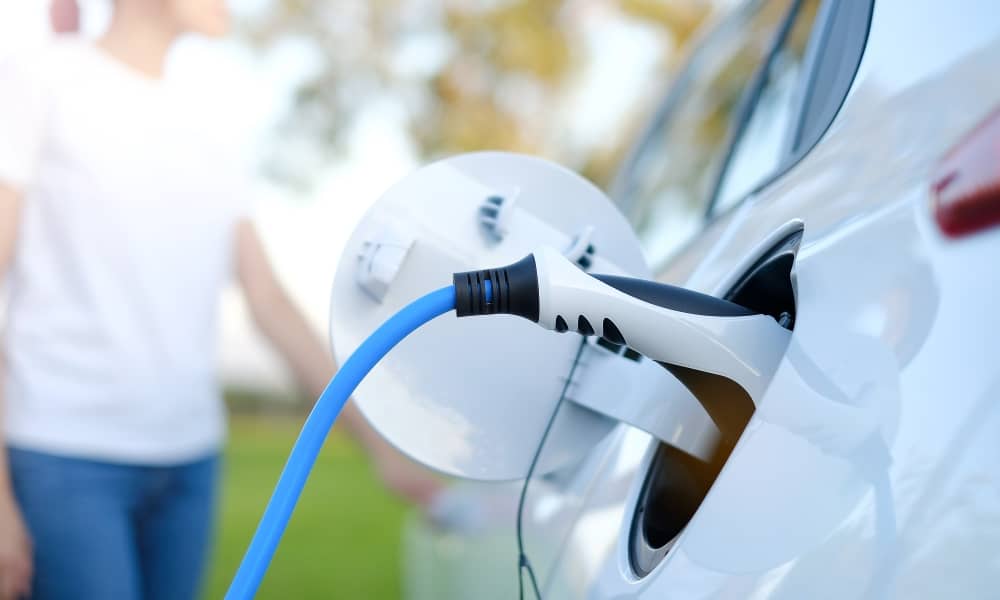Did you know that the first electric vehicle was invented in the 1890s? If not for the lack of electric infrastructure, the world would have been driving electric cars from around the 1900s. But there’s hope as the tide turns once again towards EVs.
Currently, Australia is lagging in terms of electric vehicle purchase and use despite the 41% increase in electric car registrations in 2020. However, 2022 seems an excellent time to buy an EV in Australia. With the increased range of choices, lower prices, and better performance, there is indeed sufficient motivation. If you’re considering an electric vehicle as your next car, this blog can help you make an informed decision.
Is It a Good Idea to Buy an EV?
Like most things in this world, buying an electric vehicle has pros and cons. Let’s first talk about the reasons why an EV in your garage is rapidly becoming an attractive prospect:
- Good for the Environment – Perhaps the largest incentive for buying electric cars is that they do not emit exhaust. EVs, particularly all-electric and plug-in hybrids, run on electricity, meaning they don’t have tailpipe emissions. This step alone reduces carbon footprint immensely.
- A Cheaper Alternative – Petrol prices are on the rise. In general, electricity is much cheaper than fuel and has a lower chance of fluctuating the next morning. Taking that into account, electric cars are, therefore, more affordable to run than both petrol and diesel cars. On top of that, you do not have to wait for your turn at the petrol station.
- Low Maintenance and Servicing Costs – Owning a car is expensive. The ongoing servicing and maintenance expenses are through the roof. You can avoid these costs with an electric vehicle. That’s because EVs have fewer moving parts, making running costs friendlier to your wallet. EVs do not require frequent inspections and replacements for spark plugs, valves, brakes, and others. When you drop your EV off for a service, it’s much cheaper than a regular car.
- Less Noise – No combustion engine means you enjoy a quieter drive. Isn’t it more comfortable in the cabin when there is little to no road noise? EVs are not entirely silent. Some people prefer the slight engine roar, which can still occur in some models when you put your foot down.
- More Storage Space – We know it’s not a make-or-break trait, but the additional storage space is a treat. The front trunk (or frunk) is where the engine sits in a petrol or diesel vehicle. Since you don’t need the engine and usually have a battery pack mounted under the floor, you have extra space for your stuff.
What are the Cons of Owning an Electric Vehicle?
The pros outlined previously can make EVs appealing. But don’t hurry to a dealership just yet. Be sure you know the disadvantages attached to owning and running an electric car:
- The jury is still out on whether EVs defeat petrol and diesel cars in terms of being the environment’s champion. The reality is that you have to recharge the vehicle, which means you require electricity to do so. Since electricity is produced by burning fossil fuel, you technically still contribute to fossil fuel use to power the car.
- We also stated that electric cars are cheaper than petrol and diesel engines. But on the flip side, you have to recharge your vehicle, which also costs money. The cost to recharge will depend on the battery size of the car, so it may not equate to significant savings at all.
- Apart from charging costs, electric cars may be cheaper to run and maintain, but you have to deal with higher upfront costs. The cheapest EV in Australia is the MG ZS EV, which is less than $45,000 before on-road costs. In Tasmania, you can get the BYD Atto 3 for $44,990. The rest of the country has to pay over $47,000 for this vehicle. Even with these low-priced cars, they are still around double the non-electric cars. Most EVs cost well over $100,000. But since it’s a nascent technology, likely, these prices will dramatically decrease in the future.
- Above, we discussed how service and maintenance costs are cheaper for EVs. The problem, though, is that finding a mechanic who will not only look after your car but also ensure you retain your warranties can get a little tough. Therefore, your best option is to head to a dealership – an inconvenient trade-off for the lower running costs for some people.
- Although several options are now available, electric cars still have range limitations. Many cars quickly run out of juice, usually in less than 200km of travel. That isn’t very reassuring if you plan to drive a little bit farther. Modern EVs can now get you to 300km to 400km and a few up to 600km on a single charge. That’s great. But if you think about it, a single tank of petrol can easily reach the 600km mark. Some diesel engines can even go over 1500km. A little bit of planning is required to ensure you get to your destination without any hitch.
Lastly, if you’re planning to resale your EV, don’t expect to gain too much out of it. Older models will not be as valuable in the next few years. If you have a newer model, you can still be left out of pocket when reselling it. The best way to afford a new set of wheels is to get a car loan.

Should You Buy an Electric Car in 2022?
More and more Australians have become more environmentally conscious, which is why it’s unsurprising that there’s an influx of EVs on the roads. If you’re still debating whether to purchase an EV due to the high costs.
The WA government has a few incentives for EV buyers, too. You can get as much as a $3,500 discount on your EV if it is priced below $70,000. But hurry because this scheme is only applicable to the first 10,000 eligible vehicles and will only run until 10 May 2025. Note that there are no tax breaks and registration discounts, unlike in other areas like Northern Territory and Tasmania.
The government also plans to establish a charging network for electric vehicles from Kununurra near the Northern Territory border to Perth and then to Esperance. The mining centre of Kalgoorlie is also included in developing this charging network.
Other EV Issues in Australia
A common question about EVs is regarding recharging. You can recharge it at home using the general electrical point. Some chargers can even be integrated with solar systems and a battery pack. If your home is carbon-neutral electricity powered, you offset the energy used for recharging your car. This combined approach can help you achieve a cleaner energy goal. Meanwhile, you can find public charging stations in shopping centres and hotels around the country.
If you drive between 40 to 60km daily, an EV may be a good option for you. However, suppose you like going on long trips or you rack up over 200km on your daily commutes. In that case, a hybrid model may be a better choice for now until more charging stations are built.



